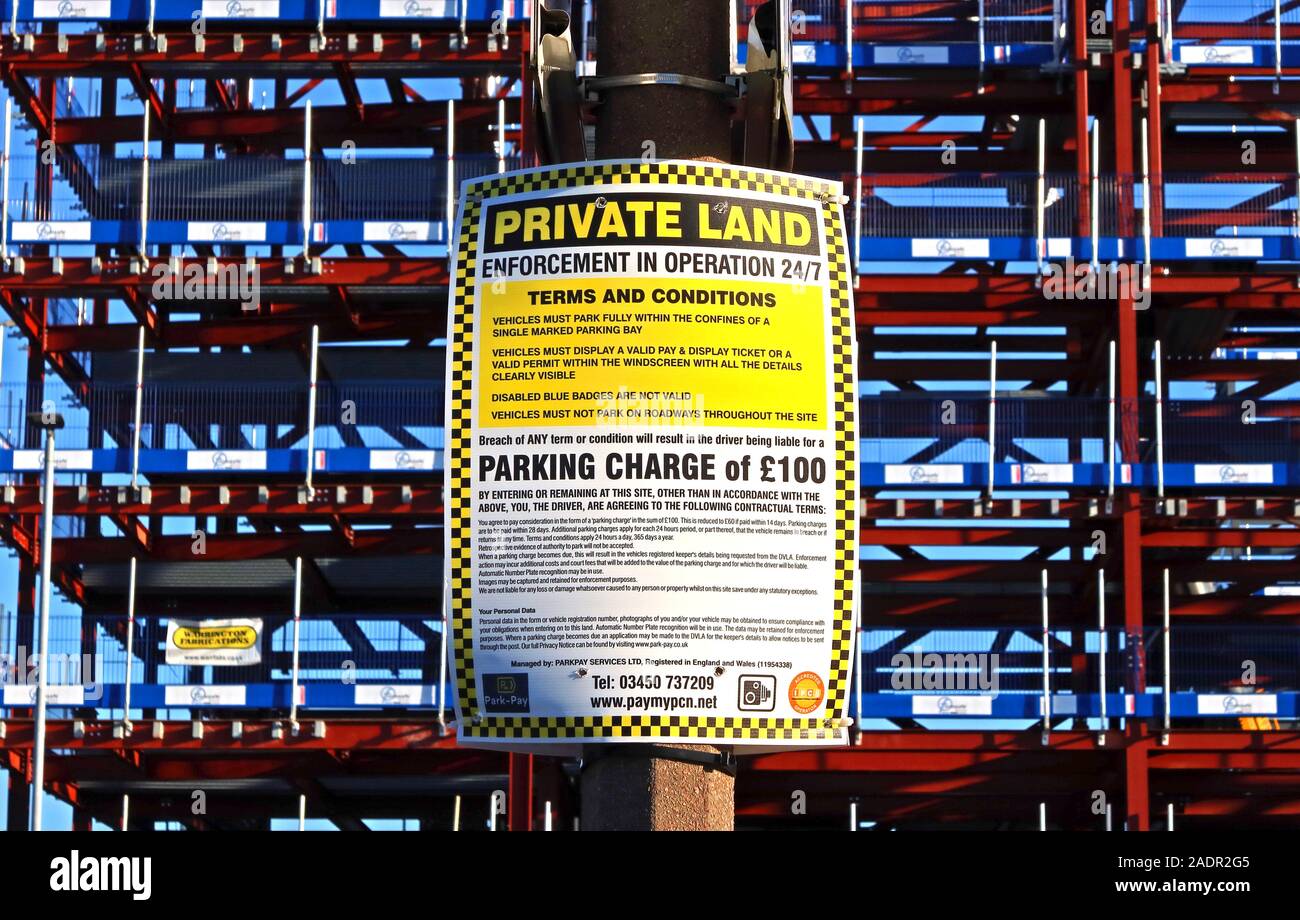Private land,Enforcement in operation,24/7,Terms and Conditions,Parking Charge of £100,Winwick Road,Warrington,Cheshire,England,UK

Image details
Contributor:
Tony Smith / Alamy Stock PhotoImage ID:
2ADR2G5File size:
38.5 MB (1.6 MB Compressed download)Releases:
Model - no | Property - noDo I need a release?Dimensions:
4592 x 2934 px | 38.9 x 24.8 cm | 15.3 x 9.8 inches | 300dpiDate taken:
3 December 2019Location:
Winwick road, Warrington,Cheshire,England,UKMore information:
Parking on public land and parking on private land are areas that are governed by different sets of rules and enforcement processes. For the most part, parking on public land is governed by rules set down by local councils and enforced by traffic wardens and/or the police. Parking on private land, by contrast, is governed by the rules of the contract between the driver and the landowner. It is enforced by the landowner and/or agents working on their behalf There are two ways a Parking Charge Notice can be served. One is as a “ticket” on the car and the other is by post to the registered owner’s address. As a rule of thumb, if you are served with a ticket it is well worth checking out whether or not the issuing car park is a member of an Accredited Trade Association (ATA). If they are, they will be able to get your contact details from the DVLA, which they can then use to pursue further legal action in the event of non-response If you were breaking the rules, then the most sensible and ethical course of action is just to pay up as quickly as you can. ATA members have to offer a discount for early payment. If, however, you think you are being unfairly penalized, then you can write to the operator and request the notice be revoked. Generally, you will need to demonstrate one (or both) of two points, either you did not break the rules (they made a mistake) or the rules were unenforceable, for example, they were not clearly displayed so you could not reasonably be expected to be aware of them. If the operator refuses to revoke the notice you can then proceed to formal appeal if you wish.